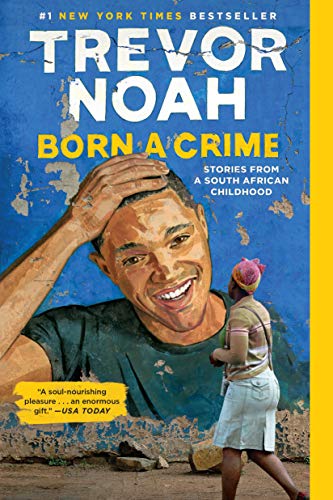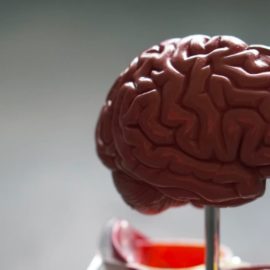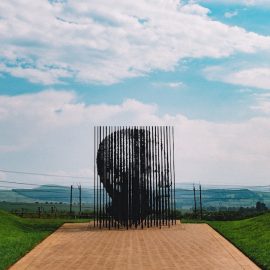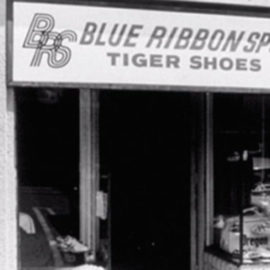

This article is an excerpt from the Shortform summary of "Born a Crime" by Trevor Noah. Shortform has the world's best summaries of books you should be reading.
Like this article? Sign up for a free trial here .
Today, Trevor Noah is a famous comedian and host, but his first careers involved selling pirated CDs and DJing. What was Trevor Noah’s DJ life like?
Learn how Trevor Noah turned a high school lunch delivery business into a business selling pirated CDs, and how that business turned into Trevor Noah’s DJ career and three years engaged in a life of petty crime.
Trevor Noah’s Pirated CD Business
Before Trevor Noah’s DJ days, he sold pirated CDs.
Noah was a straight-up businessman near the end of high school. No longer just the tuck-shop guy with a lunch delivery business, he now sold pirated CDs as part of his enterprise. With this new addition to his business brought the need to expand his footprint. He hired two other kids, Tom and Bongani, to help him sell the CDs.
Before Noah expanded his own enterprise to include pirated CDs, he sold them for a white student two years older named Andrew. The two met after Noah overheard Andrew complaining about being ripped off by the black students. The black students would buy items on credit and never pay. He was too afraid to collect.
Noah offered to partner up and manage the black students for a fee. Around this time, Noah also convinced Patricia to buy him a computer for school work. At first, he just wanted to play video games. But Andrew was a whiz at computers, and he helped Noah improve his with more memory and features and taught him how to download music.
The Gift That Launched Noah’s Career
Noah worked for Andrew for a year. When it came time for Andrew to graduate, he gave Noah his CD burner to keep the business going. Suddenly, Noah had everything he needed to go into business by himself.
Noah was a natural at the bootleg game. He was good at selling and had a product that was a hot commodity. CD burners were expensive and uncommon, so Noah had a monopoly on the pirated-CD market.
Part of what helped Noah’s business was that he catered to everyone’s tastes. He still didn’t know about popular music because it wasn’t allowed in the house, and he didn’t listen to music when he was downloading it. He was able to amass a large variety of music without bias.
One day, Noah’s employee Bongani gave him the idea of making CDs with only the best tracks of different albums, rather than whole albums. So, Noah started selling mixed CDs, which was a boon for business. Bongani had another idea: make the tracks fade in and out so the momentum of the beat wasn’t lost between songs. Again, Noah listened, and his party mixes were a hit.
Noah was making hand over fist with these new products. At one point, he was making 500 rand a week, which is more than some domestic workers still make today. For the first time, Noah was financially independent.
The Importance of a Helping Hand
Noah was living the dream, and he had Andrew to thank for it. Andrew’s generosity made Noah see the world through a different lens. He saw how important it was for marginalized communities to be given the proper resources in life after they’ve struggled for so long. Because Andrew was white, he’d been afforded more resources and opportunities. But how could the poor be expected to change their circumstances when they aren’t given the proper tools?
People saw providing resources to the needy as a handout, but Noah understood that a resource was nothing without ingenuity and hard work. Noah had the tools he needed, but a CD burner alone wouldn’t have made him a success. It takes both money and ingenuity to change your life. Someone may have one, but without the other, success is unlikely.
Trevor Noah’s DJ Career
Alexandra was home to amazing street parties. All one had to do was put up a tent in the street, and the party was on. Most of the parties went late into the night and only ended after violence erupted.
These parties would always have a DJ. Because most DJs were spinning vinyl, they had a limited supply of music, which translated into a finite amount of time to play. But Noah had several hours of downloaded music on his computer. The mixing software he used for his party CDs created the effect of a DJ spinning. Bongani convinced Noah to become a live DJ.
His first performance as a DJ was New Year’s Eve the summer after high school. Noah had moved into his own apartment in Highland North, and he and Bongani carted his whole computer system, tower and all, on a minibus to Alexandra. They set it up outside Bongani’s house, and word spread fast about the mixed guy DJing from a computer. The party was legendary, and the duo started booking more gigs. Trevor Noah’s DJing career was taking off.
DJing wasn’t just fun, it was something to do and a way to make money. During apartheid, all the jobs were low-paying slave labor jobs. Post-apartheid, employees were required to be paid minimum wage, and all that close-to-free labor went away. People were laid off because employers couldn’t afford the cost of labor. There were no jobs in South Africa for blacks, and no one would hire blacks from the hood.
Unemployment, especially for young black men, increased by approximately 50%. With no money and no jobs, there wasn’t much for Noah and his crew to do but chill in the hood.
Bongani already had a crew he hung out with on the corner, and Noah joined them. Most of the time, they’d listen to music and dance, but the crew also helped Noah with his business. After Noah discovered a chink in the chain of his business, he turned the crew into a dance troupe.
The problem was, Noah had access to so much music that other people couldn’t get. Sometimes, people wouldn’t know the songs he played. If they didn’t know the songs, they didn’t know how to dance to them. So, when Trevor Noah would DJ, the dance crew would put on a show, demonstrating the latest moves to the latest tracks. Of these dancers, the best one was a kid named Hitler.
Dancing was a big deal in the townships. Crews from other hoods would bring their best dancers to compete with each other. It was a cultural phenomenon. Hitler almost always won his competitions
Noah and his crew started building routines that showcased Hitler’s moves. The other guys would get the crowd going, then Hitler would jump in the middle and break it down. Everyone would circle around and shout “Go Hitler, Go Hitler” while bumping the beat with their arms in the air, palms down.
With the dance crew, Noah’s popularity soared. They were getting hired for all sorts of events, even in the suburbs and by white people. Trevor Noah’s DJing career was quickly becoming very lucrative.
The Hustle Extends Beyond DJing
Noah’s career as a criminal had originally started with pirated CDs. But he never thought what he was doing was a crime. If you weren’t supposed to download music and burn CDs, why would they make it possible?
He and his crew were doing good business with the CDs and DJing gigs. Minibus drivers were their best customers. Because of the competition among them, the drivers were always looking for new music. They’d drive by Bongani’s corner, place an order, complete their route, and come back to pick up the CD.
Bongani, always the visionary, saw how they could extend their hustle. He posited that a series of minor deals could create a scenario in which the deals stacked up to lead to the biggest score. They started small, such as allowing the minibus drivers to pay for CDs on credit. The drivers would take the CDs and promise to pay at the end of the week. The boys would attach a small interest rate to the debt.
This venture started bringing extra cash, a commodity in the hood. People always needed cash in Alexandra. Bongani realized they could give people small loans for a bill or food and add a little interest on the backend. Once they started doing this, they were doubling, then tripling their money.
The business expanded beyond loans. Noah and Bongani started using cash as a way to barter and make more money. In the hood, someone was always selling something on the corner, and there was always someone trying to buy whatever was being sold. The duo started looking for ways to position themselves as the middlemen.
This was the hustle Bongani and Noah came to perfect. None of it was legal (most of the items were stolen), but none of it felt like it was a crime. No one asked where anything came from. Everyone assumed the items came from white people, who had insurance.
Noah never expected their CD and DJ business to turn into a loan service and pawnshop, but every day was more of the same. At the height of their business, they had amassed around 10,000 rand. Noah had picked up knowledge of how to make spreadsheets and keep books from his mother, and he kept every aspect of the business organized on his computer.
Noah felt accepted in the hood in a way he never had before.
The End of Trevor Noah’s DJ Career
All of Noah and his crew’s success came crashing down at a party in a black middle-class neighborhood one night. The cops were called because of a noise complaint. Because of the slow technology, Noah couldn’t get the system shut down fast enough, and one of the cops shot his computer.
Noah lost his hard drive of music, meaning no more DJing and no more CDs. Business was over, but they still had the hustle and some money. However, it didn’t take long for the money to dry up. Soon, they had next to nothing.
A short while after that, a man who worked at the airport and frequently stole items from people’s luggage came by with a digital camera. Noah and his crew snatched it up to flip for a profit. The camera was full of pictures from a white family’s vacation. When Noah saw the photos, they changed him.
In all of his time as a low-level criminal, he never thought about the people who had originally owned whatever they were hustling. Without any knowledge of the victim, he could always rationalize his actions. But seeing the faces of that family made him see the people he was affecting. He cherished his family photos, and he felt terrible that this family’s memories had been stolen. It was just plain wrong.
This concept of not seeing who you hurt is the foundation the hood is built on. Apartheid moved blacks to townships so white people wouldn’t have to see how they lived and be reminded of what was happening to them. If they had to acknowledge black people as human beings trying to survive, slavery would be incomprehensible. It’s easier to do things that hurt others if you never have to see who those others are.
———End of Preview———

Like what you just read? Read the rest of the world's best summary of "Born a Crime" at Shortform . Learn the book's critical concepts in 20 minutes or less .
Here's what you'll find in our full Born a Crime summary :
- Why Trevor Noah's birth was an illegal crime
- How Trevor's single mother was the beacon of strength in his life
- How Trevor ultimately broke out and achieved success






